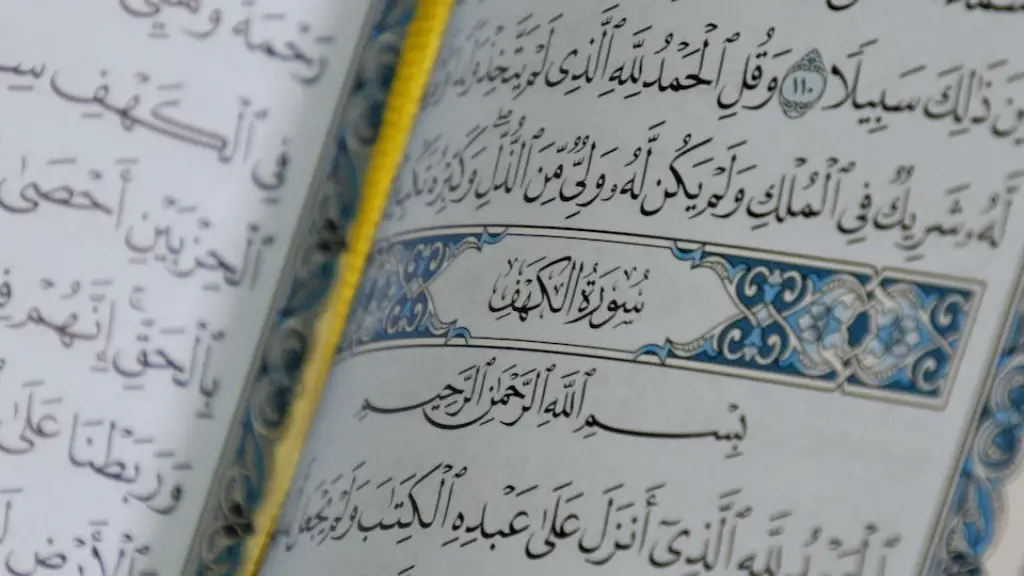The figure of Moses looms large in the Jewish faith and it is hard to imagine an individual who has played a larger role in the founding and maintenance of a faith than Moses. Indeed, Moses is often seen as the pre-eminent leader of the Israelites in the Old Testament. As such, his importance to Judaism is immense, and it is why, to this day, Moses is held in high esteem among members of the Jewish faith.
At the heart of Moses’ importance to Judaism is his role as the individual through whom God chose to give humankind the Torah, or the first five books of the Hebrew Bible. This included God’s Ten Commandments which were given to Moses on Mount Sinai, and which for many Jews remain the core of the law to this day. Additionally, throughout the rest of the Torah, it was through Moses that God conveyed information and instructions regarding religious observance, morality and laws to the Israelites. In turn, these instructions become the basis of Judaism and remain instrumental in the continued practice of Jewish Law to this day.
Furthermore, Moses is also seen as the leader who, after many years of slavery in Egypt, was able to convince pharaoh to let the Israelites go; and then, with God’s help, successfully lead the Israelites through the desert, in order to give them a land of their own in Canaan. This momentous journey is commemorated each year during the holiday of Passover. His status as a leader of such great moral conviction and strength of character is a source of inspiration for many Jews.
The influence of Moses is further evident throughout the Hebrew Bible in the many writings attributed to him, including the Book of Numbers, the Book of Deuteronomy and the Song of Moses. Through these works, Moses is held up as a model for pious behaviour and faithfulness to God. One can also draw inspiration from his commitment to the service of God over and above his own personal preferences.
Moses’ influence extends well beyond the text of the Hebrew Bible. For example, his name is often mentioned during the Passover Seder in the blessing of the first sip of wine, and is used in countless prayers. Additionally, Moses is seen as the forerunner of the many important prophets who followed in his footsteps. He is thus seen as the source of inspiration for all of the prophetic writings, which are so important in Judaism.
Finally, Moses is also seen as the rightful founder of the Jewish faith. He is credited with being the first to publicly proclaim and perpetuate the faith, and to advancing its practices and teachings, often against great adversity. As a result of this legacy, Moses has become an integral part of Jewish history and faith.
The Torah and Judaism
The Torah, or the first five books of the Hebrew Bible, are of profound importance to Judaism. They contain the divine instructions given to Moses by God, and form the cornerstone of Jewish accepted practices and teachings. These instructions include the Ten Commandments which are seen as the basis of all laws; the sacred prohibitions; and ethical and social guidelines, all of which form the basis for observance of the Jewish faith.
The importance of the Torah is further emphasized in the Torah scrolls which are prominently displayed in synagogues and which are read on a weekly basis. The scrolls symbolize the core of Jewish religious life, and the commands contained in the Torah serve to guide Jews in the pursuit of the good life. There is no doubt that the Torah is seen as a unifying force in Jewish life, and its teachings are highly revered.
The tremendous importance of the Torah and its teachings is perhaps best demonstrated in the daily ritual of reciting the Shema before going to sleep. This ritual, which includes reading from the book of Deuteronomy, serves as a reminder to all that Torah observance is essential for a life of holiness and close association with the Almighty.
Additionally, the passage from Exodus which states that “You shall be holy, for I the Lord your God am holy” (Leviticus 19:2) is seen as articulating the core attitude for leading a life of holiness. Thus, the obligation to observe the Torah is seen as central to Judaism, and serves as the foundation for all ritual and ethical observance.
The observance of the Torah is not merely seen as a way to maintain the Jewish faith, but also as a way to live in accordance with the will of God. This is often framed as the pursuit of justice and righteousness, and is seen as an essential element of religious life. As such, it is clear that the Torah and its teachings, as first conveyed by Moses, are of tremendous importance to Judaism, and are a source of inspiration and guidance to this day.
The Legacy of Moses
The legacy of Moses is one that has endured to this day, and his influence can be seen in many areas of Jewish life. He is seen as the exemplar of holiness and the ideal of a leader with strong moral convictions, and is held in great esteem. His writings are of tremendous importance and his status as the leader who brought about the Exodus from Egypt is commemorated on a yearly basis. Additionally, his teachings serve as the basis of the Torah and the ethical and legal obligations that accompany it. As such, it is not hard to see why Moses is such an important figure in Judaism and why his legacy will continue to inspire Jews for generations to come.
The Passover Seder
The Passover Seder is an important ritual in the Jewish faith and one which is held in high esteem. This ritual reenacts the story of the Exodus from Egypt, and is seen as a commemoration of Moses’ leadership in freeing the Israelites from slavery. The Seder is the most widely observed and important of all Jewish holidays, and is one which serves to unite the Jewish people in their shared faith and beliefs.
The Seder is centered around a meal which includes particular foods, such as matzah, bitter herbs and wine. The meal is accompanied by a series of special prayers and readings which focus on freedom, redemption and liberation. Additionally, the Seder is marked by the telling of the story of Moses’ leadership in leading the Israelites through the desert. This is usually done by an adult, who acts as a narrator and brings the story to life in a vivid and engaging way. The Seder ends with a blessing of Moses, thanking God for bringing him forth as the leader of the Israelites.
The Passover Seder is thus a powerful experience which reminds us of the importance of faith, of freedom and of the unifying force throughout the generations which is represented by the figure of Moses. The Seder serves as a reminder of the faithfulness of Moses in leading the Israelites, as well as of the enduring power of prayer and of the shared values which are symbolized by the Passover.
Moses in Jewish Education
In addition to providing inspiration from the perspective of faith, Moses is also seen as an important figure in terms of education. For example, he is often mentioned in school textbooks as an example of a leader of courage and moral integrity, and his devotion to the service of God is seen as a model of piety and faithfulness. Additionally, Moses is also seen as the source of inspiration for the many prophets who followed him and whose writings form the core of Jewish ethical and legal teachings. As such, his influence can be seen in many aspects of Jewish religious life, and his importance to Judaism is far-reaching.
In Jewish classrooms, Moses is often the focus of the teacher’s lessons, and his legacy is usually explored through stories, texts and activities. For example, many schools offer an exploration of Moses’ life and teachings in the Monday morning prayer of Shema. This serves as an introduction to the week ahead and as a reminder of the importance of faithfulness to God. Additionally, Moses also serves as the inspiration for many of the weekly youth programs which are organized by synagogues and other Jewish organizations. These often focus on tolerance and ethical behavior, as embodied by Moses’ example.
Moses’ importance to Judaism is further evident in the many books and films about his story which are aimed at young audiences. These serve to captivate the imaginations of the viewers and provide a visual interpretation of the life of Moses, as well as an exploration of his teachings and philosophy. As such, it is clear that Moses is an integral part of Jewish education and an important role model for young Jews.
Moses and Jewish Rituals
Moses is also an important figure in terms of the various rituals which are embedded in the practice of Judaism. For example, he is often mentioned in the Kiddush, which is a special blessing over wine that is recited on Shabbat and other holidays. Additionally, his name is frequently mentioned in the synagogue during the Havdalah ceremony, which is a special blessing of separation from the Sabbath. These are just two examples of how Moses has become intertwined with the rituals of the Jewish faith.
Moses is also an important figure in the holiday of Purim which is celebrated each year. This is a day of feasting and joyous celebration, and is marked by the reading of the Megillah, or Scroll of Esther. In this book, which recounts the story of Esther and Mordechai’s role in thwarting the monarch’s plan to annihilate the Jews, Moses is seen as the pre-eminent leader of the Jewish people. As such, his importance is invoked throughout the holiday and is seen as the source of inspiration for Esther’s remarkable courage and faithfulness.
Another example of Moses’ importance to the rituals of Judaism is seen in the observance of Yom Kippur, or the Day of Atonement. This is the holiest day of the year for practicing Jews, and is observed with a full day of fasting, prayer and reflection. As part of this observance, prayers are said for the forgiveness of sins, and many of them include the name of Moses. Moreover, the atonement prayers also refer to the privilege of being part of the Jewish people, which is a reference to Moses’ leadership in forming the covenant between God and his people. As such, it is clear that Moses is a flagship figure in the practice and observance of Judaism.
Moses in Modern Judaism
Moses’ presence in modern Judaism continues to be strong, and his legacy is still revered to this day. He is often cited as an example of moral courage and strength of character, and his writings continue to inspire many Jews. Additionally, Moses’ importance is felt in the everyday rituals of Jewish life, from the weekly prayers of Shema to the yearly observance of Passover. Moreover, the commitment to faith and moral values which he embodied is a source of inspiration for many Jews, and his legacy remains an integral part of Jewish practice.
In fact, Moses’ influence can be seen in many different aspects of modern life. For example, his name is often invoked in debate about social justice and his writings continue to be a source of insight for many people. Furthermore, his life is often cited as an example of the importance of faith and devotion, and



